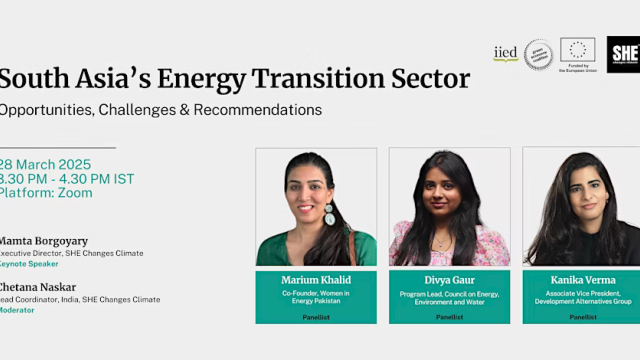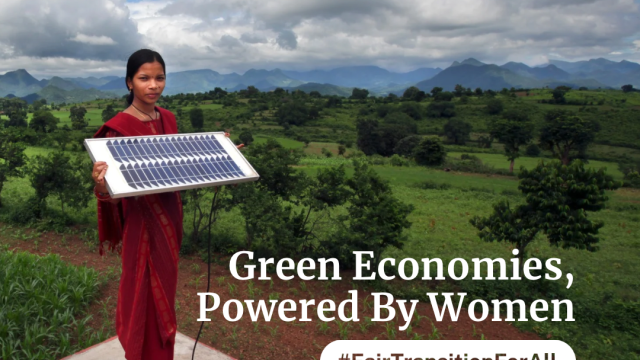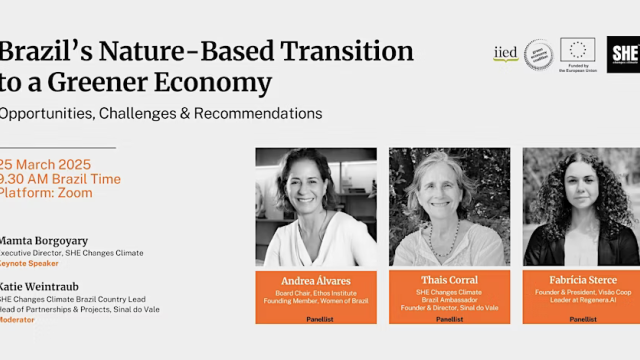
Impoverishment and dispossession on the green economy's dark side
In green economies, economic growth and environmental sustainability are seen to go hand-in-hand, and central to this are new financial values and markets for pieces and aspects of nature. But can nature really be sold to save it? Is this compatible with poverty-reducing sustainable development?
Across the world, ecosystems are for sale. For example, supporters of the Nature Conservancy and the African Wildlife Foundation are now invited to "adopt an acre" - or perhaps 50 acres (20.234 hectares) for US$1,750 - in order to protect valuable wildlife heritage from human-induced degradation. The web portal, Ecosystem Marketplace, offers information updates and investment and price trend data on carbon, water and biodiversity markets. It states: "We believe that... markets for ecosystem services will one day become a fundamental part of our economic system, helping give value to environmental services that, for too long, have been taken for granted." The aim of the information portal is to "spur the development of new markets" and "facilitate transactions".
Meanwhile in Mozambique, a company with British capital is negotiating a lease with the government for 15 million hectares, or 19 per cent of the country's surface. Its interest is in the carbon stocks represented by the trees that can be grown on that land, and traded in emerging carbon markets. In Liberia in 2008, the UK-based Carbon Harvesting Corporation proposed a carbon contract covering 400,000 hectares of rainforest that left the proportion of carbon credit sale price to the government unspecified, and all local rights over forest resources extinguished.
In Latin America, conservation agencies, ecotourism companies and the military are aligning to protect the Guatemalan Maya Biosphere Reserve as a "Maya-themed vacationland" which will generate ecotourism profits, while conveniently assisting the government's war on drugs and counter-insurgency. In the process, people are being violently excluded.
In Africa, Amazonia and beyond, businesses are revaluing anthropogenically enriched soil agro-ecosystems and farming practices for "biochar", developing plantation and pyrolysis schemes to produce and sell it on carbon markets. Carbonscape planned 930 million hectares of biochar feedstock plantations on so-called "under-used, marginal" lands in Africa - which are actually the places where farmers and pastoralists make their livelihoods.
“ In the rush to repair a damaged nature through trading and offset schemes, we must not neglect the processes and political-economic structures that caused the damage in the first place”
These are all examples and dimensions of "green grabbing" - the appropriation of land and resources for environmental ends. This is an emerging process of deep and growing significance. The vigorous debate on global "land grabbing" already highlights instances where "green" credentials are called upon to justify appropriations of land for food or fuel - as where biofuels are promoted as "low carbon" energy solutions, or large tracts of land are acquired not just for "more efficient farming" or "food security", but also to "alleviate pressure on forests".
In green grabbing, however, environmental agendas are the core drivers and goals of grabs - whether linked to biodiversity conservation, biocarbon sequestration, biofuels, ecosystem services, ecotourism or "offsets" related to any and all of these. In some cases these involve the wholesale alienation of land, and in others the restructuring of rules and authority in the access, use and management of resources that may have profoundly alienating effects.
Green grabbing builds on well-known histories of colonial and neo-colonial resource alienation in the name of the environment - whether for parks, forest reserves or to halt assumed destructive local practices. Yet it involves novel forms of valuation, commodification and markets for pieces and aspects of nature, and an extraordinary new range of actors and alliances. Pension funds and venture capitalists, commodity traders and consultants, GIS service providers and business entrepreneurs, ecotourism companies and the military, green activists and anxious consumers among others find once-unlikely common interests.
A special issue of the Journal of Peasant Studies, edited by James Fairhead, Ian Scoones and myself, has just been published on this theme. This collection draws new theorisation together with 17 cases from African, Asian and Latin American settings, and links critical environmental studies with critical agrarian studies, to ask: To what extent and in what ways do "green grabs" constitute new forms of appropriation of nature? How and when do circulations of green capital become manifest in actual appropriations on the ground - through what political and economic dynamics? What are the implications for ecologies, landscapes and livelihoods? And who is gaining and who is losing?
While contexts and dynamics vary, the cases reveal how "green grabbing" is a rapidly growing part of the green economy's dark side. Here, ecosystems stand to be "asset-stripped" for profit and dispossession and further poverty amongst already-poor land and resource users is all too likely.
If market-based mechanisms are to contribute to sustainable development and the building of economies that are not only green but also fair, then fostering an agenda focused on distribution, equity and justice in green market arrangements is vital. This must include meaningful local engagement and consultation based on transparency, accountability and free, prior informed consent.
Yet green markets cannot do it all. In the rush to repair a damaged nature through trading and offset schemes, we must not neglect the processes and political-economic structures that caused the damage in the first place. Responsibility for tackling unsustainable practices in wealthy industrialised settings should not be offloaded by financialising ecosystems in other parts of the world. And if sustainable development is genuinely to be pursued, we need to recapture nature from the market's grasp, nurturing and legitimising more interconnected human-ecological relationships and understandings, along with tried-and-tested forms of local ecosystem stewardship based on them.
Melissa Leach, Director of the ESRC STEPS Centre
For more information please visit the STEPS Centre website.


